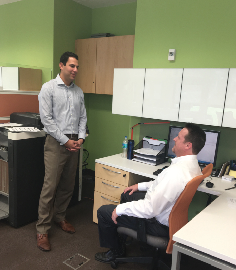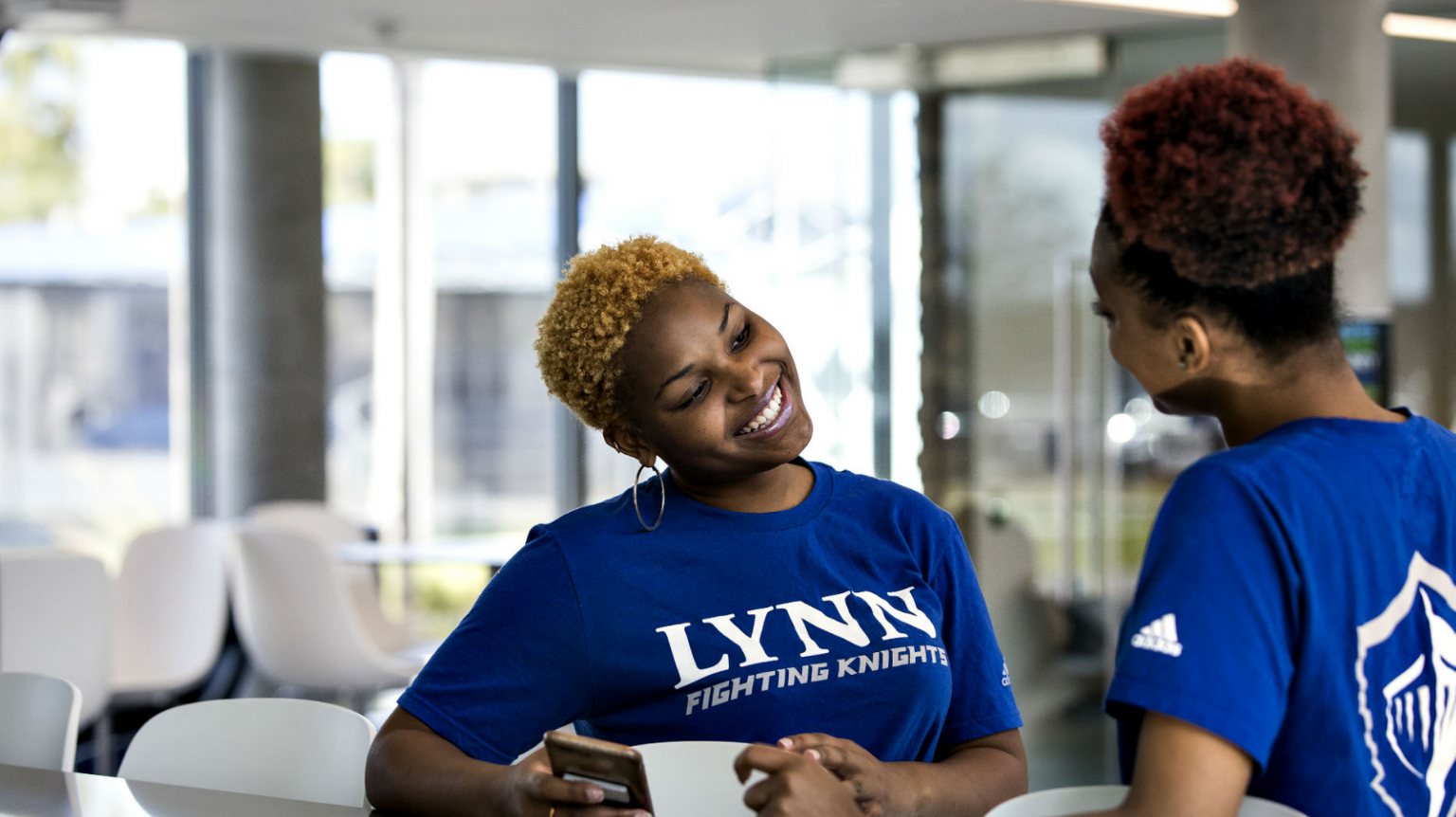Paving Paths and Connecting Students
Staff in the Hannifan Center for Career Connections on campus have great input on how students can identify their strengths and weaknesses, and the sooner one takes advantage of this resource, the better off they will be in finding what they are meant to do.
Whether be a student or even employee at Lynn, it is never too late to find out what one loves to do and what one is meant to do, even if they have uncertainties for what they may be doing at the present moment. The majority of people in their lifetime change their career path more than once, which is why taking the time to identify one’s strengths and weaknesses earlier on, may save them time when searching for a potential career.
Career Coach Robert Nealon explains that, “most people are likely to work over 80,000 hours in their career. If they are going to be working for that amount of time, they may want to do something that they are interested in.”
To get to this point, Nealon expressed the importance of not writing off individual interests, even if they may not appear to apply to a profession or major.
According to Nealon, one problem that often holds students back from identifying their interests is specificity. “A lot of younger students think that if they get a degree with a specific label, then [they] can only do a select number of jobs,” he said.
“I have seen students hesitate when they are looking at a particular job or major, or when they see one aspect of the job requirement that they may not like or be good at,” said Cameron Gill, internship and employment coordinator. “That one item on the list will have them shy away from that opportunity.”
Gill explained that no job is perfect, and that giving up an opportunity because of just one minor detail or skill requirement would be nonsensical. That skill requirement might not even be a big part of the job, according to Gill, nor would it affect overall performance. Doubting one’s ability and cutting out the factor of practicing this skill could really limit opportunities. By having a limited view of the work force, individuals are ultimately limiting themselves.
The Career Connections office also offers resources such as setting up opportunities for students to shadow alumni and other business professionals. There are also many different workshops and seminars that individuals can attend on and off campus.
“Get a job, internship or even volunteer, because how else are you going to find out what you like to do?” said Barbara Cambia, executive director of Career Connections, pertaining to the recourses the office offers. “Go out and try stuff, and never be afraid of trial and error!”
“If you are applying for jobs or careers, and you know you are good at A, B and C, you can then research positions that require these particular skills and could match your strengths to an employer, and their particular needs,” said Nealon.
The Career Connections team work hard to make sure that students and professionals who seek their help recognize both their strengths and weaknesses when applying for jobs or internship positions. Identifying these early on, according to the team, can be beneficial for anyone seeking opportunity.
Article written by Danielle Paschall, Staff Writer at iPulse.


